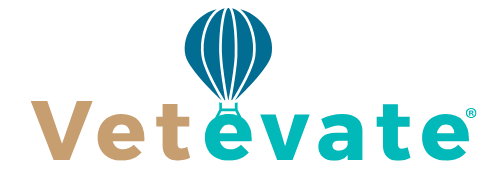Finding a veterinarian job close to home can be both exciting and overwhelming, especially given the range of options available across clinics, hospitals, research institutions, and specialty practices. With so many platforms offering employment listings, it can be difficult to know which ones will truly serve your specific needs as a licensed veterinarian looking for nearby work. This is where veterinary job boards prove their value. Unlike general employment websites, veterinary-specific job boards are tailored to professionals in animal healthcare. They offer curated, up-to-date listings that make the process of finding local veterinarian roles faster, more accurate, and far more efficient.
Veterinary job boards are designed with filters and features that speak directly to your field. These platforms often allow for refined searches based on specialization, practice type, and even the species you prefer to work with. Because they are managed or supported by professional veterinary associations or industry-focused organizations, the listings tend to be more relevant and legitimate. Whether you’re looking for a role in small animal practice, large animal medicine, emergency care, or exotic animal care, these boards can provide targeted results that reflect your interests and credentials. For those prioritizing proximity, the geographic filters are especially helpful, allowing you to pinpoint veterinarian jobs within a specified distance from your location.
Setting Up and Customizing Your Local Search
The first step in using a veterinary job board to find jobs near you is to create an account and build a complete professional profile. Most reputable veterinary job boards—such as those hosted by the American Veterinary Medical Association (AVMA), Veterinary Career Network, or state-level veterinary associations—will prompt you to upload a resume or CV, list your qualifications, and indicate your desired location or preferred commuting radius. These details are important, not only because they guide your search results, but also because they may allow employers searching the database to find you based on your geographic availability and licensure.
When conducting a local search, use the location filters to your advantage. Many platforms let you enter a zip code or city and then specify a search radius, such as five, ten, or fifty miles. This is particularly useful if you’re not willing to relocate or if you want to stay within a comfortable commuting distance. If you’re open to telemedicine or hybrid positions, some boards also let you check options that offer partial remote work, which has become increasingly common in follow-up consultations and client communications. If you’re licensed in more than one state or region, you can include additional geographic areas in your search settings to expand your opportunities.
It’s also beneficial to set up job alerts. Most veterinary job boards include a feature that allows you to save your search criteria and receive notifications when new jobs that match your filters are posted. By subscribing to these alerts, you can stay informed of new opportunities without having to manually search the site every day. This is particularly important in competitive markets where veterinarian openings may fill quickly. Being among the first to apply can make a strong impression, especially when the position is local and the employer is looking for someone who can start promptly.
Strengthening Your Application for Local Clinics
Even when applying to nearby veterinarian jobs, it’s crucial to present yourself as a qualified, committed, and professional candidate. Your resume should clearly reflect your educational background, licensure, experience, and any areas of specialization. When uploading your resume to a veterinary job board, ensure that the file is formatted for easy readability and that all your contact information is current. If you’re using a platform that allows you to build your resume directly within your profile, take the time to complete every relevant section, including continuing education, certifications, and volunteer experience.
In addition to your resume, your cover letter can play a significant role in local applications. Many hiring managers appreciate when candidates show familiarity with the community or the specific practice. Use your cover letter to express why you’re seeking a position in the area and what makes you a good fit for that clinic or hospital. Mention any local ties you have, such as family connections, past work in the region, or a personal interest in the client base served by the practice. This can help employers see that you’re likely to remain in the area and are invested in the community.
Another way to strengthen your profile is to include references from previous employers, colleagues, or mentors who can speak to your clinical abilities, work ethic, and professionalism. Some veterinary job boards allow you to attach recommendation letters or provide contact information for references directly within your profile. This can be especially persuasive in local searches where employers may be more inclined to reach out and verify credentials quickly to move the hiring process along.
Following Up and Building Connections in Your Area
Once you’ve applied to veterinarian positions through the job board, it’s helpful to follow up in a professional and timely manner. If the listing includes the contact information of the hiring manager or practice owner, consider sending a brief email a week or so after submitting your application. In your message, express your continued interest in the position, reinforce your enthusiasm about working locally, and offer to provide any additional materials or references. While not every employer will respond, this small gesture often demonstrates initiative and professionalism.
In addition to following up on individual applications, use the veterinary job board as a launchpad for building local connections. Some boards offer forums, community events, or virtual meetups where veterinary professionals can network and share career advice. Participating in these activities can help you learn about unadvertised job opportunities and give you a better sense of what local employers are looking for. You may also gain insights into which clinics are expanding, which ones have recently changed ownership, or where turnover might open up new roles.
Networking is especially effective when combined with proactive outreach. If you see a veterinary clinic near you that doesn’t currently have an opening posted but aligns with your interests, consider reaching out directly. Many practices are open to hiring strong candidates even if they haven’t formally advertised a position. Let them know that you’re local, available, and interested in future opportunities. You might even offer to provide relief work or fill in on a temporary basis, which can lead to permanent employment if the clinic finds your skills valuable.
In summary, using a veterinary job board to find veterinarian jobs near you can be a highly effective strategy when done thoughtfully. By leveraging location-based filters, building a strong profile, tailoring your applications, and actively following up, you position yourself for greater success in landing a role that meets your professional goals and fits your lifestyle. As more practices continue to use online platforms to manage hiring, your ability to navigate these tools confidently and proactively will serve as a major advantage in your local job search.




